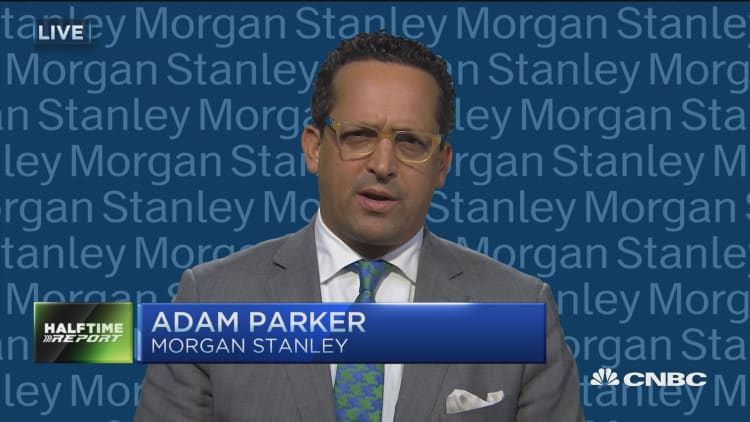


While markets wrestle with uncertainty, the U.S. economy is moving forward. And it's the economy that the Federal Reserve is watching as it weighs interest rate increases, a former Fed member told CNBC.
Mark Olson, who served on the Federal Reserve Board of Governors and the Federal Open Market Committee, said he would vote for a rate increase if he were in Wednesday afternoon's Federal Reserve meeting.
Volatility in oil prices and the U.S. dollar may be weighing on markets, but people are returning to the workforce, sending employment on a steady upswing and prompting welcomed inflationary pressure — and that's the Fed's main concern.
"The markets are not the economy," Olson told CNBC's "Squawk on the Street" on Wednesday. "And the Fed, ultimately, is looking at the economy."
Central bankers are slated to announce Wednesday afternoon whether the economy is ready for an increase in the federal funds target rate, used as a benchmark for interest on everything from car loans to Treasurys.
Scott Mather, chief investment officer of U.S. Core Strategies at Pimco, said the Fed has been continually too optimistic about the U.S. and global economy, calling their credibility into question. Mather told CNBC's "Fast Money: Halftime Report" it's time for central banks to push back on the idea that they can control the whole economy.
"Each central bank action is becoming less and less impactful, it seems, on the real economy, and less impactful, in many ways, on financial markets as well," Mather said. "Monetary policy, at this point, might be doing more harm than good, and it's more important to move back to a more normal set of interest rates."
Not everyone has such a sunny view of the economy.
Adam Parker, U.S. equity strategist and director of quantitative research at Morgan Stanley, sees recession risk rising over the next year. But he's watching plenty of negative catalysts beyond central bank policy, including Britain's potential exit from the European Union, the strength of the Chinese economy and the strength of the U.S. dollar.
"It's harder to be as optimistic when you have a stronger dollar, you have lower oil, you have lower 10-year yields and you have a lower economic outlook, and that's what my colleagues around the world are forecasting," Parker told "Halftime Report."





